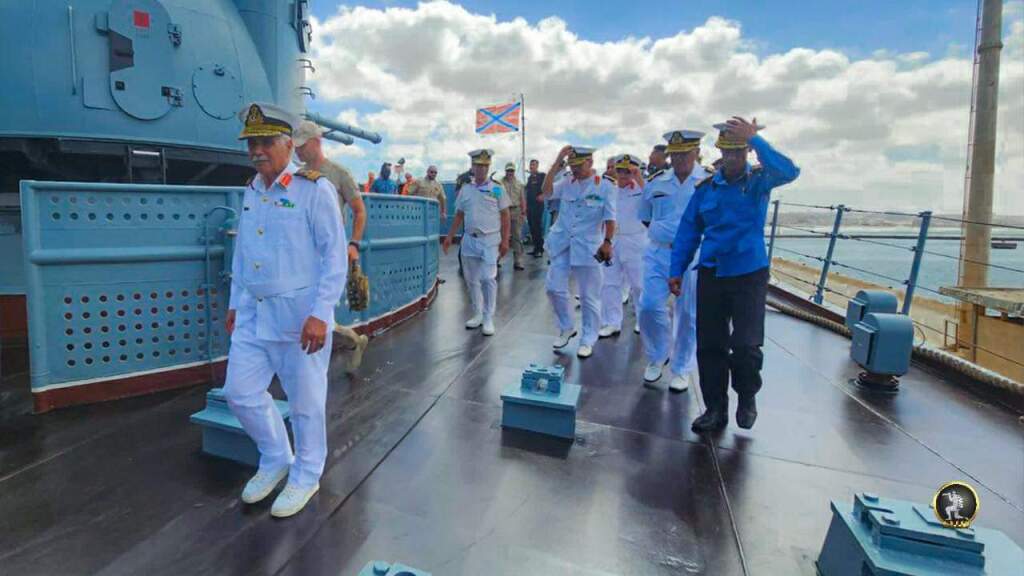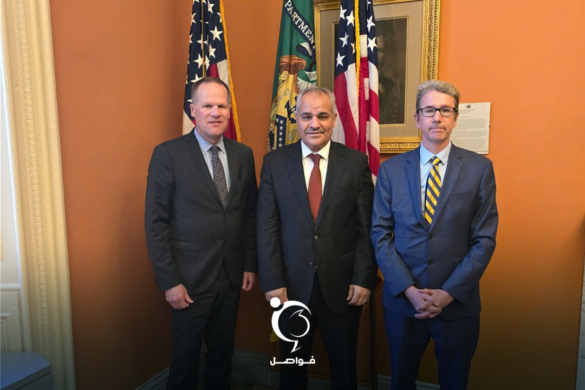Moscow is intensifying its military movements in eastern Libya, fueling concerns that it may be seeking to establish a permanent naval base in the region.
In the latest development, a Russian naval group comprised of the Varyag guided-missile cruiser and the Marshal Shaposhnikov frigate conducted a three-day visit to the Tobruk naval base controlled by the General Command led by Khalifa Haftar. The visit came after a series of recent Russian arms deliveries and high-level meetings between Moscow and Haftar’s forces, raising suspicions that Russia is solidifying its military cooperation with the Haftar.
The General Command announced that the naval visit aimed to “enhance cooperation between Russia and Libya and restore long-standing friendly relations.” However, the move is viewed as part of escalating Russian efforts to entrench its military footprint in eastern Libya, amid reports that Moscow intends to establish a naval base that would provide a strategic foothold on the Mediterranean coastline.
Russia’s Growing Military Presence
This naval visit is not an isolated incident. In April, Russia delivered at least five large arms shipments to the General Command forces in Tobruk, as documented by video evidence from the port obtained by Fawasel Media Platform.
U.S. Senator Pete Ricketts has also expressed “serious concerns” about Russia’s increasing military activities in Libya, stating that Moscow has transferred Russian special forces and thousands of mercenaries from the Ukraine conflict to the North African country this year.
According to the Western investigative project “All Eyes on Wagner,” Russia has relocated at least 1,800 soldiers and fighters to eastern and southern Libya in recent months, though the Russian Embassy in Libya has denied these claims.
Expanding Russian Influence in the Mediterranean
It is suggested that Russia’s military buildup in eastern Libya is part of a broader strategy to expand its influence and establish new military outposts in the Mediterranean region and North Africa. This move is seen as part of Moscow’s strategic confrontation with the West and NATO.
In addition to its potential base in Libya, Russia already maintains the Hmeimim Air Base in Syria, which it shares with the Basil Al-Assad International Airport. The General Command has also announced plans to construct a “massive military city” west of Benghazi, spanning over 5,400 hectares and including a naval port and military airport, further fueling speculation about potential Russian involvement in the project.
While Russia insists its activities in Libya are aimed at strengthening traditional ties and cooperation with its allies, the escalating military movements and reports of potential base establishments have raised alarms about Moscow’s long-term strategic plans in the region.




